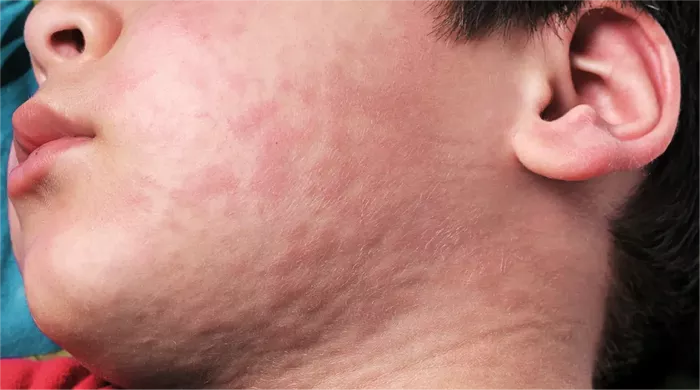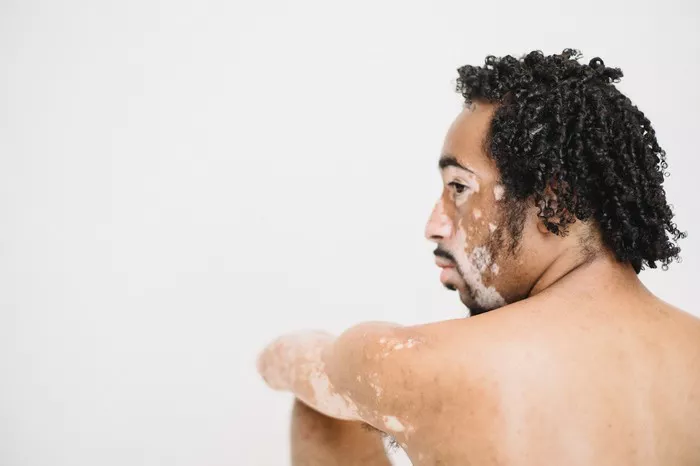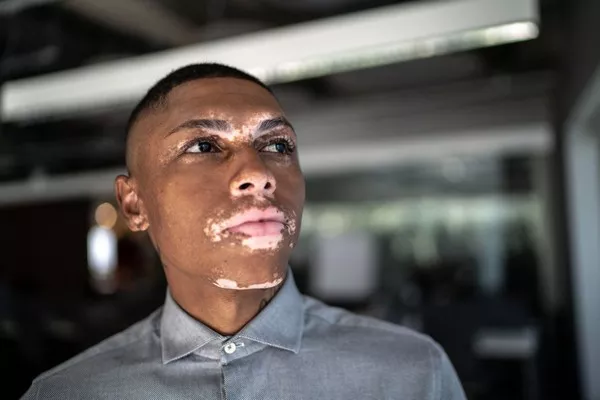Urticaria, commonly known as hives, is a skin condition that causes itchy, raised welts on the skin. These welts can vary in size and can appear anywhere on the body. This article will guide you through understanding urticaria, its symptoms, triggers, and how to identify if you have this condition.
What Is Urticaria?
Urticaria is an allergic reaction that causes the skin to develop red, itchy welts or bumps. It can occur suddenly and may last for a short period or recur over time. Hives can affect anyone at any age, but they are especially common in adults.
Types of Urticaria
Urticaria can be classified into different types based on its duration and cause:
Acute Urticaria: This type lasts for less than six weeks. It often results from allergic reactions to foods, medications, or insect stings.
Chronic Urticaria: This type lasts for six weeks or more and can persist for months or even years. The cause is often difficult to identify.
Physical Urticaria: This occurs in response to specific physical stimuli, such as pressure, temperature changes, sunlight, or exercise.
Symptoms of Urticaria
Recognizing the symptoms of urticaria is essential for proper diagnosis and treatment. The most common symptoms include:
Raised Welts: The primary symptom is the appearance of raised welts or hives on the skin. These welts can be small or large, and they often have a pale center surrounded by a red area.
Itching: Hives are usually very itchy, which can be uncomfortable and distressing. The itching can sometimes be intense.
Swelling: Along with hives, some individuals may experience swelling, particularly around the eyes, lips, or throat. This swelling is known as angioedema.
Flushing: In some cases, the skin may become flushed or red.
Bumps: The welts may vary in size and shape. They can come and go quickly and may change location on the body.
How to Identify Urticaria
To determine if you have urticaria, consider the following steps:
1. Observe Your Symptoms
Pay attention to your skin and any changes. Take note of:
- When the welts appear
- How long they last
- Any associated symptoms, such as swelling or difficulty breathing
- Locations on your body where the welts occur
2. Keep a Diary
Maintaining a symptom diary can help identify patterns and triggers. Record:
- Dates and times of outbreaks
- Activities you were doing when hives appeared
- Foods you ate before symptoms developed
- Any medications taken around the time of outbreaks
- Environmental factors, like temperature changes or stress levels
3. Consult a Healthcare Professional
If you suspect you have urticaria, it is essential to consult a healthcare professional. They can provide an accurate diagnosis through:
Physical Examination: A doctor will examine your skin and ask about your medical history and symptoms.
Allergy Testing: If an allergic reaction is suspected, tests such as skin prick tests or blood tests may be conducted to identify specific allergens.
Physical Tests: For physical urticaria, a doctor might perform tests to determine the triggers, such as applying pressure to the skin or exposing you to different temperatures.
Common Triggers of Urticaria
Understanding the common triggers can help manage and prevent future outbreaks. Some typical triggers include:
Foods: Common allergens include nuts, shellfish, eggs, milk, and soy.
Medications: Certain medications, such as antibiotics (like penicillin) and non-steroidal anti-inflammatory drugs (NSAIDs), can trigger hives.
Insect Stings: Bites or stings from insects, such as bees or wasps, can cause hives in sensitive individuals.
Environmental Factors: Pollen, pet dander, dust mites, and mold can trigger hives in allergic individuals.
Physical Factors: Pressure, heat, cold, and sunlight can lead to physical urticaria.
Stress: Emotional stress can also play a role in triggering or worsening hives.
Diagnosis of Urticaria
Diagnosis of urticaria involves a thorough evaluation by a healthcare professional. They may ask questions about:
- Your symptoms and their duration
- Any previous occurrences of hives
- Family history of allergies or skin conditions
- Lifestyle factors that might contribute to outbreaks
After gathering this information, your doctor may conduct tests to rule out other conditions or confirm the diagnosis of urticaria.
Treatment Options
Treatment for urticaria focuses on relieving symptoms and addressing any underlying causes. Here are common treatment options:
1. Antihistamines
Antihistamines are the first line of defense against urticaria. They help reduce itching and swelling by blocking histamine, a substance released during allergic reactions. Over-the-counter options include:
- Diphenhydramine (Benadryl)
- Loratadine (Claritin)
- Cetirizine (Zyrtec)
In some cases, your doctor may prescribe higher doses or different types of antihistamines.
2. Corticosteroids
For more severe cases of urticaria, corticosteroids may be prescribed. These medications help reduce inflammation and itching. They are usually taken for a short period due to potential side effects with long-term use.
3. Avoiding Triggers
Identifying and avoiding triggers is crucial for managing urticaria. If certain foods, medications, or environmental factors are known triggers, avoiding them can help prevent outbreaks.
4. Immunotherapy
For chronic urticaria that does not respond to other treatments, immunotherapy may be considered. This treatment involves gradually exposing the body to allergens to build tolerance.
5. Emergency Treatment
In severe cases, especially when there is difficulty breathing or swelling of the throat (anaphylaxis), immediate medical attention is necessary. An injection of epinephrine may be required.
When to Seek Medical Attention
While most cases of urticaria are not serious, there are circumstances when you should seek medical attention:
Difficulty Breathing: If you experience shortness of breath or wheezing, seek emergency care immediately.
Swelling of the Throat or Face: Swelling that affects your ability to swallow or speak is a medical emergency.
Persistent Symptoms: If hives last more than six weeks, it is essential to consult a healthcare professional for further evaluation.
Signs of Infection: If the welts become infected (redness, warmth, pus), seek medical help.
Living with Urticaria
If you have been diagnosed with urticaria, there are several strategies to help manage your condition:
1. Stress Management
Stress can exacerbate symptoms. Techniques such as meditation, yoga, and deep breathing can help reduce stress levels.
2. Skin Care
Keep your skin moisturized to prevent dryness and irritation. Gentle soaps and fragrance-free products are advisable.
3. Medication Management
Always follow your healthcare provider’s instructions regarding medications. Keep antihistamines on hand for quick relief.
4. Support Groups
Connecting with others who have urticaria can provide emotional support and practical advice.
Conclusion
Understanding urticaria is crucial for managing this skin condition. By recognizing the symptoms, identifying triggers, and seeking appropriate medical help, you can effectively cope with urticaria. If you suspect you have hives, don’t hesitate to consult a healthcare professional for an accurate diagnosis and tailored treatment plan. With the right approach, living with urticaria can be manageable.
Related topics:


























